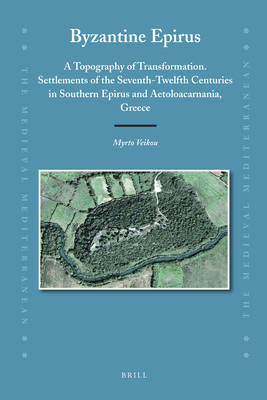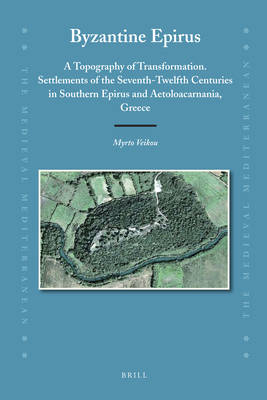
- Afhalen na 1 uur in een winkel met voorraad
- Gratis thuislevering in België vanaf € 30
- Ruim aanbod met 7 miljoen producten
- Afhalen na 1 uur in een winkel met voorraad
- Gratis thuislevering in België vanaf € 30
- Ruim aanbod met 7 miljoen producten
Zoeken
Byzantine Epirus
A Topography of Transformation. Settlements of the Seventh-Twelfth Centuries in Southern Epirus and Aetoloacarnania, Greece
Myrto Veikou
€ 470,45
+ 940 punten
Omschrijving
Much of the past twenty years of scholarship on late-antique and medieval landscapes and settlement has introduced theoretical patterns reflecting meta-narratives of evolution and transition. This book draws on 5 years of archaeological and topographical fieldwork in order to attempt a rereading of Byzantine texts in accordance with recent perceptions of the historicity of space. The result is a fresh interpretation of settlement in Western Greece (Southern Epirus and Aetoloacarnania) from 600 to 1200 AD, springing from a postmodern theoretical background. While representing real progress in the treatment of the Middle Byzantine regions, the book makes an ecological contribution to historical and social studies through a new evaluation of the transformation of medieval settlement as a result of interaction between physical/social space and human agency.
Specificaties
Betrokkenen
- Auteur(s):
- Uitgeverij:
Inhoud
- Aantal bladzijden:
- 904
- Taal:
- Engels
- Reeks:
- Reeksnummer:
- nr. 95
Eigenschappen
- Productcode (EAN):
- 9789004221512
- Verschijningsdatum:
- 25/05/2012
- Uitvoering:
- Hardcover
- Formaat:
- Genaaid
- Afmetingen:
- 155 mm x 235 mm
- Gewicht:
- 1552 g

Alleen bij Standaard Boekhandel
+ 940 punten op je klantenkaart van Standaard Boekhandel
Beoordelingen
We publiceren alleen reviews die voldoen aan de voorwaarden voor reviews. Bekijk onze voorwaarden voor reviews.








